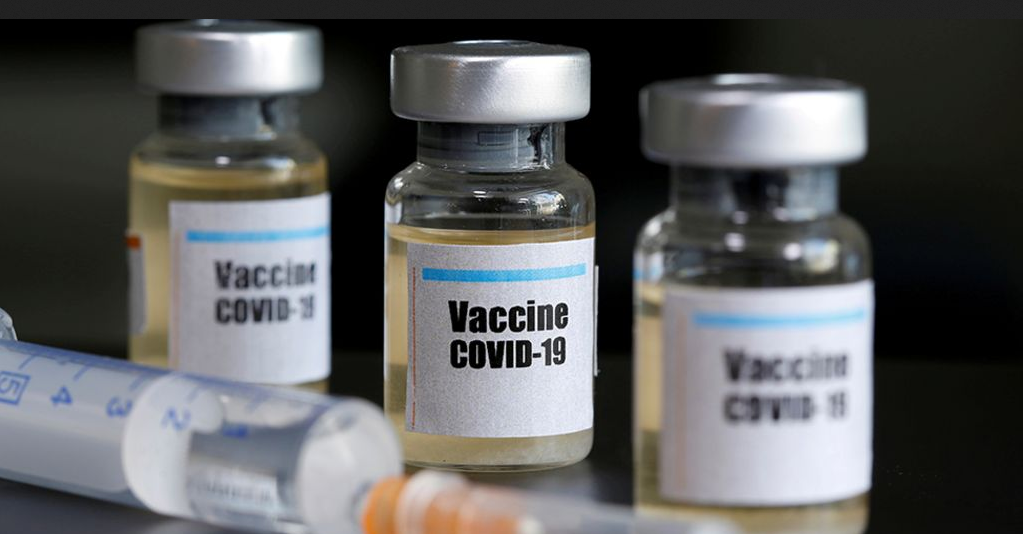Health care employees and nursing home residents ought to be at the front of the line when the primary coronavirus vaccine shots become out there, an influential government advisory panel said Tuesday.
The panel voted 13-one to advocate those teams get priority in the primary days of any returning vaccination program when doses are expected to be very limited. The 2 teams encompass twenty-four million folks out of a U.S. population of concerning 330 million.
Later this month, the Food and Drug Administration can contemplate authorizing the emergency use of 2 vaccines made by Pfizer and Moderna. Current estimates project that not more than twenty million doses of every vaccine can be accessible by the tip of twenty. And every product needs two doses. As a result, the shots will be rationed in the early stages.
The Advisory Committee on Immunization Practices will meet again at some point to make a decision on who should be next in line. Among the possibilities: teachers, police, firefighters, and workers in other essential fields like food production and transportation; the elderly; and folks with underlying medical conditions.
Tuesday’s action just designated who ought to get shots 1st if a safe and effective vaccine becomes available. The panel didn’t endorse any particular vaccine.
Panel members are waiting to listen to the FDA’s analysis and to determine a lot of safety and efficacy information before endorsing any explicit product.
Consultants say the vaccine will probably not become widely on the market in the U.S. till the spring.
The panel of outside scientific consultants, created in 1964, makes recommendations to the director of the Centers for Disease Control and Prevention, who virtually continuously approves them. It normally has fifteen voting members, however, one seat is vacant.
The recommendations are not binding, but for decades they have been widely heeded by doctors, and they have determined the scope and funding of U.S. vaccination programs.
It can be up to state authorities whether to follow the steerage. It will conjointly be left to them to make any, a lot of detailed choices if necessary – for instance, whether or not to put emergency room doctors and nurses ahead of other health care workers if vaccine supplies are low.
The outbreak within the U.S. has killed nearly 270, zero individuals and caused an additional than 13.5 million confirmed infections, with deaths, hospitalizations, and cases rocketing in recent weeks.
As the virtual meeting got underway, panel member Dr. Beth Bell of the University of Washington noted that on average, one person is dying of COVID-19 per minute in the U.S. right now, “thus I guess we are acting none early on.”
That broad class includes medical workers who look after – or come back in-tuned with – patients in hospitals, nursing homes, clinics, and doctor’s offices.
It conjointly includes home health care employees and paramedics. Depending on how state officers apply the panel’s recommendations, it may additionally encompass janitorial staff, food service employees, and medical records clerks.
The government estimates folks working in health care account for twelve% of U.S. COVID-19 cases but only about 0.5% of deaths. Specialists say it’s imperative to keep health care employees on their feet so they will administer the shots and tend to the booming number of infected Americans.
For months, members of the immunization panel had said they would not take a vote till the FDA approved a vaccine, as is customary. However late last week, the cluster scheduled an emergency meeting.
The panel’s chairman, Dr. Jose Romero, said the decision stemmed from a realization that the states face a Friday deadline to put initial orders for the Pfizer vaccine and confirm where they ought to be delivered. The committee determined to fulfill currently to administer state and local officers steering, he said.
However, some panel members and alternative consultants had conjointly grown involved by comments from Trump administration officers that suggested differing vaccine priorities.
Full Coverage: Coronavirus pandemic
Dr. Deborah Birx of the White House coronavirus task force said in a meeting with CDC officials last month that folks sixty-five and older ought to move to the pinnacle of the line, consistent with a federal official who wasn’t approved to debate the matter and spoke to The Associated Press on condition of anonymity.
Then last week the U.S. Health and Human Services Secretary Alex Azar stressed that ultimately governors can decide who in their states gets the shots. Vice President Mike Pence echoed that read.

